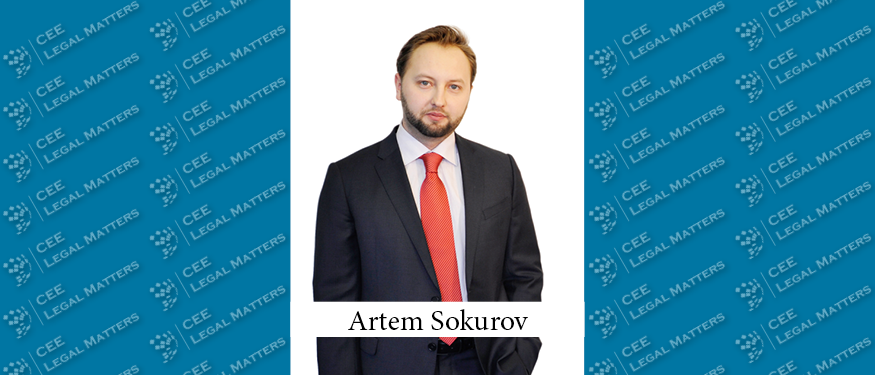With a new cryptocurrency regulation in the legislative pipeline, Ukraine's anti-aggression measures are also ramping up, presenting even more uncertainties and challenges for all business sectors in the country and keeping lawyers on their toes, according to Sytnyk & Partners Counsel Artem Sokurov.
“The new crypto regulations draft presented by state authorities aims to address the unregulated nature of crypto in Ukraine and to finally propose a taxation regime,” Sokurov begins. “By aligning with the EU's MiCA framework, Ukraine seeks to establish a transparent legal landscape, eradicating the existing gray areas. This move is planned as a step towards much-needed protection for investors and companies, and it should also bolster trust in Ukraine's potential,” he says. The regulations aim to ensure Ukraine remains open and attractive to existing and future local investments as well as those from the EU and international investors, according to him, “thereby facilitating growth and keeping the status of top-3 country in the world in terms of the adoption and penetration of crypto.”
Additionally, Sokurov outlines some of the effects that the Russian invasion had on Ukrainian markets of late. “The anti-aggression measures in place require companies to fill out questionnaires about their dealings and connections, in order to detect Russian influence. These have created challenges for businesses with any sort of ties to Russia – many international clients find themselves in a tough position, uncertain about the potential consequences of non-compliance,” he explains. Moreover, the sanctions for failing to complete these questionnaires are not entirely clear, either. “It remains uncertain whether accounts, including securities and money accounts, could be frozen by the state, or if further escalations could occur. These questionnaires are sensible and important in their aim because detecting Russian influence is a national security interest – but they have placed additional strain on international clients and may affect their operations,” he adds.
In addition, Sokurov reports that the Ukrainian state authorities compiled a list of “international sponsors of war.” This list includes companies and international groups like Auchan, Xiaomi, and Metro – all of whom now face a potentially huge reputational risk,” he explains. “While the current implications of being on the list are primarily and mostly reputational, the situation remains fluid, and practical consequences may arise in the future.”
Continuing, Sokurov posits that, while the “anti-aggression measures and the 'international sponsors of war' list aim to uncover traces of Russian influence for state security purposes, these also place a significant burden on businesses and individuals.” He notes the questionnaires, while necessary from a security perspective, “result in a substantial workload for international clients, while the 'international sponsors of war' list carries both reputational risks and the potential for market reactions.” However, the practical consequences of being included on the list remain uncertain, leaving businesses in a legal and economic vacuum, he reports.
Finally, giving an example of the difficulties these measures impose, Sokurov mentions a couple of European banks having subsidiaries in Ukraine, each of them being a top-ten bank in the country. “Those banks still have an extensive presence in Russia and exiting this market is a complex, complicated, and lengthy challenge for them.” The banks hold significant importance for the Ukrainian economy, both being admitted by the regulator as “systematically important banks,” Sokurov says in conclusion. “Any issues affecting such prominent players would undoubtedly reverberate throughout the country. The interconnectedness of businesses, including shareholdings and accounts, means that any complications the banks encounter may have a wide-reaching impact for all citizens.”






















